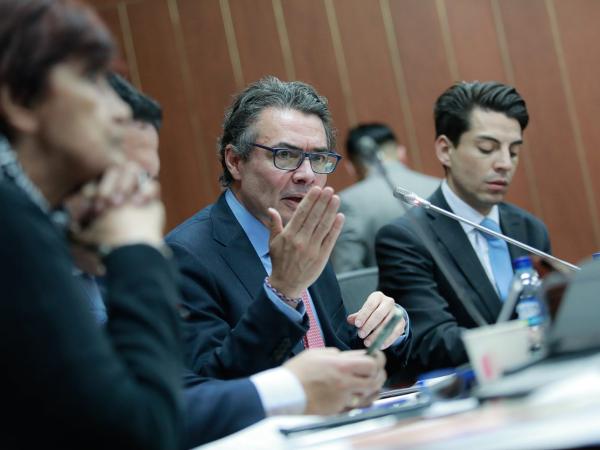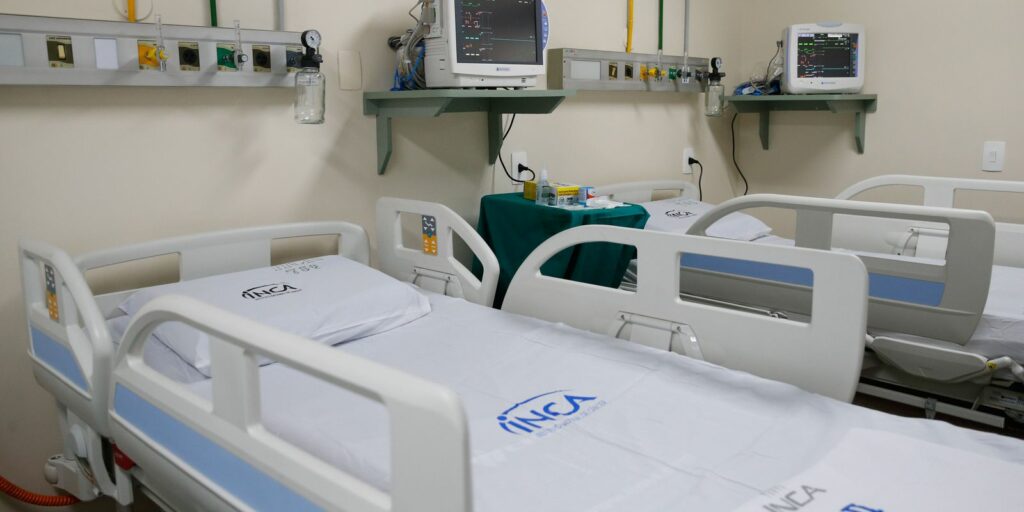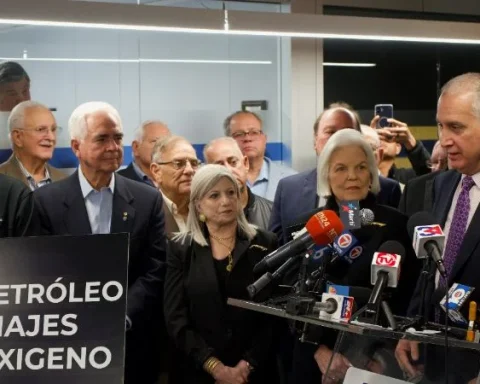Although for Alejandro Gaviria, Minister of Education of the Petro Government and former Minister of Health, the reform of the health system in Colombia necessary this must be based on a clear diagnosis.
(Only 1 in 3 Colombians would migrate to a public health system).
“Without a clear diagnosis or an answer to the questions raised, the proposed reform can do damage, a lot of damage. Which would go against the usual principle for those who deal with people’s health: above all do no harm”Gaviria pointed out about the project that has been advancing in the country and that would be filed in the coming weeks before Congress for debate in the extraordinary sessions, which begin on February 6.
Gaviria harshly criticized some aspects of the project during a Council of Ministers, where listed their concerns compared to some aspects of what is known so far about the initiative.
“Every reform effort must begin with a diagnosis, with an analysis of what works and does not work, with an evaluation of the installed capacities (you never start from scratch) and the heterogeneous territorial realities”he warned.
(Health reform will go through extraordinary sessions of Congress).
For the official, the diagnosis that was made of the health system is not clear, since, from his perspective, it is insinuated that the problems of the system originate in the administration when they are more related to inequity. Therefore, he points out that eliminating the EPS does not solve financial unsustainability, corruption and territorial inequalities.
He highlighted that the health subsystem of the teachers and the armed forces, which are not administered by EPS, have great financial difficulties and, in comparison with the contributory regime, there are “three times more complaints per 1,000 affiliates”which could be replicated on a larger scale with the proposed project.
As the minister said: “Colombia’s experience with single public payers has been disastrous. It was disastrous with the so-called free assignment of Social Security in 1996, with the direct recovery of Fosyga for care for the displaced population in 2001 (…) The country remembers the posters of hemophilia, HIV, psychiatric patients, etc.”.
‘Pose a strange strategy’: Gaviria
Alejandro Gaviria pointed out that regional inequities are more related to the gaps between rural and urban areas than to the health system itself, a situation that is repeated in other sectors and that the reform should correct.
“But the proposed reform poses a strange strategy: destroy what works in cities to supposedly fix what doesn’t work in rural areas. Instead of trying to fit a primary care strategy into the system, the reform tries to fit the whole system to a primary care strategy. A strange logic”, he claimed.
(Petro defends the health reform after various criticisms of the project).
Gaviria also affirmed that the current health system has many strengths “product of thirty years of innovation and collective work”, hence “destroying it would be suicide.”
The minister took advantage of the occasion to reiterate the doubts that exist around the project: what will happen to the patients, what the flow of resources will be like, what the transition will be like, among many others, because although the reform proposes “a single payer, the ADRES, which is today a treasury and would become a large public EPS”details are not known.
‘The route of attention is not clear’
The minister questioned that there has been no discussion about who will provide other services currently handled by the EPS, such as home care, pharmaceutical management, coordination and delivery of medicines, control of chronic patients, maternity leave and disabilities , among others.
“The EPS have tens of thousands of people employed for these tasks. With the reform, it is not known who will assume them. Will the 110,000 EPS employees become public officials? Will the patients be left adrift? There are no answers for those questions”Gaviria questioned.
The reform could put fiscal sustainability at risk
Regarding the management of the resources that the new reform proposes, Gaviria warned that the ADRES lacks capacities for the management of expenditure, a point that the project “ignores” and that, in his opinion, is essential.
“Without control of spending, the bankruptcy of the system will be inevitable and accelerated (…) In the proposed scheme, which does not define control of spending and collection, the fiscal impact would be enormous. Spending would multiply and collection could fall substantially. This fiscal contingency could jeopardize the fiscal sustainability of the country”he stressed.
BRIEFCASE
With information from ET


















